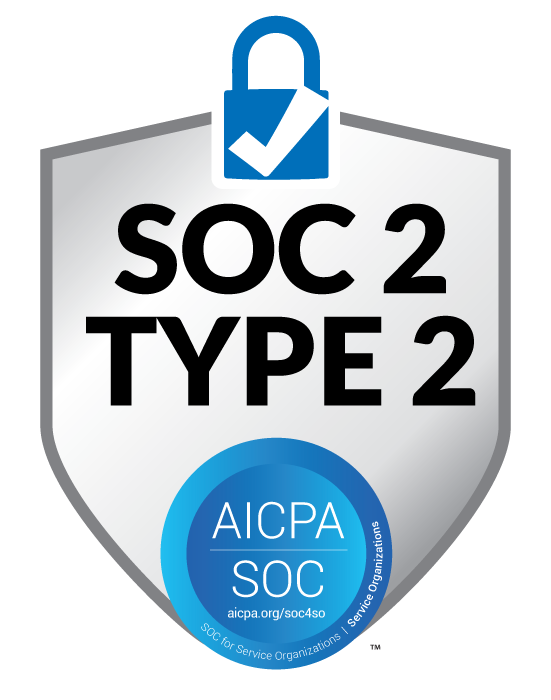Introduction
Compliance projects in banking are inherently complex and high-stakes, particularly in Europe where regulations like PSD3, PSR, and the Pillar 3 Hub demand rapid adaptation to maintain financial stability. Imagine a scenario where a major bank must implement changes to align with new AML directives: teams scramble to assess impacts, estimate timelines, and monitor ongoing adherence, all while facing potential fines exceeding $1 billion for breaches, as seen in historic cases like Binance’s $4.3 billion penalty. The stakes are amplified by the sheer volume of regulations—over 13,000 new EU rules between 2019 and 2024—creating a labyrinth that strains resources and increases error risks.
Subject matter expertise plays a pivotal role here, providing the deep insights needed to interpret regulations, forecast project needs, and ensure accurate implementation. However, traditional SME dependency has clear limitations: knowledge is often siloed in individuals, leading to bottlenecks during estimates review, inconsistent knowledge building from project issues, and reactive compliance monitoring. In one European bank, regulatory change management delays due to manual processes contributed to extended project timelines, echoing broader industry challenges like ESG reporting and cybersecurity threats. These pain points not only hike operational costs but also expose banks to non-compliance penalties, which can reach billions and erode stakeholder trust.
The good news? AI in banking compliance is emerging as a game-changer. By deploying a Subject Matter Expert Assistant Agent, banks can automate these processes, capturing SME wisdom in a reusable format. This shift promises faster regulatory change adoption, lower project overhead, and long-term value through centralized knowledge reuse. As we’ll explore, lowtouch.ai’s no-code platform makes this accessible, enabling enterprises to build custom AI agents tailored to their needs. (For more on our digital workers, check out our guide on enterprise AI agents.)
What Is a Subject Matter Expert Assistant Agent?
A Subject Matter Expert Assistant Agent is an advanced AI-driven digital worker that emulates the expertise of human SMEs, leveraging machine learning to analyze data, provide recommendations, and automate workflows in compliance-heavy environments. Unlike basic chatbots, these agents possess capabilities such as natural language processing, predictive analytics, and integration with enterprise systems, allowing them to handle complex tasks like validating project estimates against historical data or monitoring regulatory compliance in real-time.
In banking, these agents integrate seamlessly with project management tools (e.g., Jira or Microsoft Project) and compliance systems (e.g., AML software or risk management platforms). For example, they can pull data from regulatory databases, cross-reference with internal policies, and generate automated reports. Research from McKinsey indicates that generative AI could revolutionize risk and compliance management in banks over the next three to five years by automating data-heavy tasks and offering real-time insights. Similarly, the Financial Stability Board notes AI’s benefits in operational efficiency and regulatory compliance.
At lowtouch.ai, our no-code platform empowers users to configure these agents without extensive coding, focusing on enterprise needs like knowledge base automation and estimates review automation. This integration reduces dependency on scarce SMEs, ensuring consistency and scalability. However, it’s crucial to address potential risks, such as AI biases in decision-making, through robust governance— a topic we’ll touch on later.
Transforming the Estimates Review & Approval Process
One of the most time-consuming aspects of banking compliance projects is the estimates review and approval process for project tasks. Traditionally, SMEs manually assess effort based on past experiences, but this is prone to inaccuracies due to varying interpretations and incomplete historical data. In banking IT projects, challenges like regulatory compliance and scalability often lead to underestimations, causing delays and budget overruns.
A Subject Matter Expert Assistant Agent transforms this by auto-validating estimates using historical data and SME-captured knowledge. For instance, the agent can analyze past compliance implementations, factor in variables like team size and regulatory complexity, and suggest refined timelines. This AI-supported review accelerates approvals, reducing bottlenecks that cause project delays.
Grant Thornton reports that banks are increasingly using AI for regulatory compliance to improve efficiencies. In practice, this could mean a 40% reduction in review time, as the agent flags discrepancies and provides evidence-based justifications. By integrating with project management systems, it ensures transparency, allowing stakeholders to approve with confidence. For European banks facing tight deadlines under regulations like instant payments (effective January 2025), this means faster time-to-market and lower overhead. Explore how lowtouch.ai facilitates this in our compliance automation AI case studies.
Building a Living Knowledge Base
Knowledge building in banking projects often suffers from silos, where insights from issues during design, testing, and production support phases are lost or underutilized. Recurring problems, such as integration glitches in compliance software, lead to repeated efforts and heightened risks.
AI agents for knowledge management address this by capturing recurring issues in real-time and organizing them into searchable repositories. These enterprise AI agents use natural language processing to tag and categorize data, making insights accessible for future projects and audits. For example, during a compliance change rollout, the agent logs resolution steps for a data privacy issue, enabling quick reuse in similar scenarios.
Industry experts highlight how AI agents turn knowledge management into a dynamic process, with autonomous curation and search efficiency. This not only boosts productivity but also supports audits by providing traceable records. In banking, where knowledge base automation is key to compliance, this centralized approach reduces repetitive issues by up to 30%, fostering a culture of continuous improvement.
Compliance Monitoring & Reporting
Post-project monitoring is critical in banking, yet manual processes often fail to detect risks promptly, leading to non-compliance. With new regulations like DORA emphasizing operational resilience, banks need proactive tools.
A Subject Matter Expert Assistant Agent excels here by tracking regulatory changes against implemented policies, using AI to scan updates from sources like the EU Official Journal. It automates reporting for internal and external audits, generating dashboards that highlight deviations and escalate issues.
EY notes that AI enhances continuous monitoring in lending and compliance, detecting issues early. This continuous risk detection minimizes penalties and ensures faster corrective actions, integrating with systems for seamless workflows.
Case Example (Hypothetical but Realistic)
Consider a mid-sized Europe-based bank implementing compliance changes for the new AML directives in 2025. Facing siloed SME knowledge and delayed estimates, they deployed a Subject Matter Expert Assistant Agent via lowtouch.ai.
The agent automated estimates review, cross-referencing historical data to achieve 40% faster approvals. During phases, it captured issues like cybersecurity gaps, building a knowledge base that reduced repetitive compliance issues by 30%. Post-go-live, automated monitoring cut audit preparation time by 50%, avoiding potential fines.
This mirrors real trends where AI reduces compliance overhead, as seen in Deloitte’s work with European banks.
Strategic Benefits for the Banking Enterprise
Deploying these agents yields strategic advantages: accelerated time-to-market for compliance changes, improved estimate confidence, and long-term risk reduction. Productivity rises as overhead drops, with centralized knowledge reuse driving innovation.
Banks report significant efficiency gains from AI in compliance. Reduced non-compliance penalties—potentially saving millions—enhance financial health.
| Benefit | Description | Potential Impact |
|---|---|---|
| Time-to-Market Acceleration | Faster estimates and approvals for regulatory changes | Up to 40% reduction in project timelines |
| Improved Productivity | Automated knowledge capture and reuse | 30% fewer repetitive issues |
| Risk Reduction | Continuous monitoring and reporting | Lower penalties, e.g., avoiding $263M+ fines |
| Cost Savings | Reduced overhead in reviews and audits | 2.71x lower than non-compliance costs |
The Future of SME Agents in Banking
Looking ahead, SME agents will evolve as trusted compliance partners, orchestrating knowledge across departments. With advancements in generative AI, they’ll handle predictive compliance, anticipating regulatory shifts.
Cross-department integration could unify risk, finance, and operations, as AI’s role in banking expands. At lowtouch.ai, we’re at the forefront, enabling no-code builds for these futures. (Learn more about our AI in banking compliance solutions.)
Conclusion
In compliance-heavy industries like banking, Subject Matter Expert Assistant Agents are critical for transforming estimates review, knowledge building, and monitoring into efficient, risk-averse processes. They bridge enterprise needs with AI-powered automation, ensuring faster regulatory adoption and long-term value.
Discover how lowtouch.ai helps enterprises build AI-powered SME assistants for compliance, efficiency, and trust. Contact us today to schedule a demo and unlock your digital workers.
About the Author

Satish Ganesan
Satish Ganesan is a seasoned Delivery Management Professional and a key contributor to a no-code AI platform focused on enterprise automation. With expertise in delivery management, IT operations, and process optimization, Satish helps organizations streamline workflows and achieve operational excellence.
He focuses on bridging technology and business needs, leveraging agentic AI to drive efficiency and innovation. His passion lies in enabling enterprises to adopt AI-driven solutions that automate routine tasks, enhance decision-making, and ensure data privacy, all while integrating seamlessly with existing systems. Through his insights, Satish is committed to helping businesses unlock scalable, secure automation tailored to their needs.




